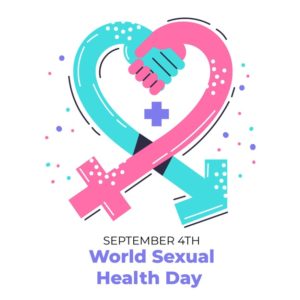
Sexual Health: Safe Sex & STDs
Did you know that if you are exposed to HIV within 48 hours, there is still hope? You can take a medicine call PEP (post-exposure prophylaxis) to prevent becoming infected.
This post is not about treatment, or diagnostic but preventative tests. Most of us, men or women only seek professional health when we do have a problem and sometimes, when we find out about the problem, it might have already been too late. So in the past, when I worked mainly as a nuru masseuse, before a nuru massage, I would send out a sexual profile for clients to fill in. One of the questions on the list was when your last STD check-up was. One or twice, the response came back with what these tests were, or he was not promiscuous, so there was no need to have such a test. I was a bit baffled. People don’t need to sleep around to get STDs. They just need to be unlucky. The person they sleep might have only one partner at a time, but how can they be sure that this partner didn’t happen to sleep with someone that get infected with some kind of STDs without exhibiting any symptoms? Your man or woman could have been infected when he/ she was born from his/ her mother or just happened to kiss someone while he/ she had a cold sore. For quite a few people, they told me they had these tests when they had a medical checkup for a work permit, and “they were included”. At one time, I asked a client who was contemplating a nuru to clarfiy if he knew what was included in the test after viewing his sexual profile. He simply said HIV. He was not alone. Hundreds of men living overseas or living and working in Vietnam assumed that their health check was comprehensive. I did some research into this; most insurance companies do not cover STD checks; therefore, when a person undergoes their annual general checkup, STDs are not screened. I looked further into this and found that their are very few insurance companies that actually cover STD. And when they do, there is a difference between diagnostic and preventative tests let alone treatment; there’s also different coverage for men and women where women at risk or pregnant women will get these tests while there’s none for men. Now, the contents of these tests also vary. Most STDs test include HIV (always), syphillis (sometimes) and hepatitis B (often). Take work permit health check in Vietnam as an example. Foreigners in Vietnam do not have any other test except for Hepatitis B.
So what a complete STD test check list include?
- HIV
- Syphillis
- Chlamydia
- Gonorrhoea
- Hepatitis B, C
- HSV 1, 2
- HPV DNA test and Pap smear (for women only)
During these tests, your blood, urine or vaginal swab will be collected for screening. I’m not going into details of the symptoms and treatment. You can google all of these on the internet. If you are a responsible sexual being, have STD screening tests at least once a year. If you cannot afford it, go for blood donation. As a general rule, your blood will be tested for HIV and syphillis, and you will be notified if you are infected. What a great way to get tested for free; at least, if you are healthy, you know that someone will benefit from your blood. Since I’m living in HCMC at the moment, I will just focus on where you can have these tests. One of the reliable and affordable test labs is 548 Nguyen Chi Thanh, D5. You will meet with a doctor first and tell this person your concern, then you will be given a menu of tests to tick off. Other places you can visit are Family Medical Practice, Victoria Health Care, VinMec, and Columbia Asia International Clinic. The fees are around $100 to $250 for all tests listed above. Call around to see if consultation is inclusive; otherwise, it’s an additional $25-30. There might be a different pricing system for locals and expats. If you are in Vietnam, watch out for non-reputable general clinics which will charge you a fortune for unnecessary tests and treatments. Be careful with quick tests for HIV, Syphillis and Chlymadia. These test results will not be accurate if you are just exposed to the virus or bacteria. If costs are prohibitive, learn to be open-minded to your partner’s sexual history and honest about yours. Both are entitled to make an informed decision based on the other’s facts. Tell them about your sexual profile and any unsafe practices in the past. Learn to look at your sexual organ often and maybe take pictures of it for the comparison purpose. Look out for bumps, blisters, black spots, etc. on the body especially in the groin area. Check for smell, any irregularities, discharge, thrush; notice your urination pattern; listen to your body; learn how to identify exactly different parts of your sexual organ. Wash before and after sex; always pee after having sex; don’t use scented products to wash your private part (if you’re a woman). Educate yourself to protect people you love; give your kids HPV vaccine while you can; learn how to make love properly to prevent tear, dryness, scrape, scratch given that women tend to get infected more easily than men. STDs are treatable with antibiotics, however, STIs such as herpes and warts are with you forever; the latter though not painful can develop into cancer especially for women. The former can be kept at bay by antiviral medicine. Many people with herpes and warts can still have a fulfilling and happy life as long as they know what to expect; people around them should be supportive and consider STDs and STIs normal medical infections and diseases instead of social stigmas. After all, if you aren’t afraid to have sex, why are you afraid to talk about sex and its complications?
